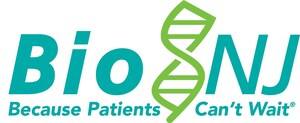TRENTON, N.J., Sept. 29, 2021 /PRNewswire/ -- BioNJ, the life sciences trade association for New Jersey, today released a new white paper, "Prescription Drug Affordability Boards: Myths vs. Facts on Drug Supply Chain," that corrects the record on several common myths about Prescription Drug Affordability Boards (PDAB) and their harmful impact on Patients and the medical innovation ecosystem. The BioNJ white paper concludes that policymakers should avoid the creation of a PDAB as a means to control drug costs and should instead adopt solutions that will improve Patient access and deliver savings to the health care system, such as capping Patient out-of-pocket costs and using negotiated rebates to provide savings to Patients.
"Prescription Drug Affordability Boards threaten Patient access to existing treatments and dampen future medical innovations for hard-to-treat conditions," said BioNJ President and CEO Debbie Hart. "BioNJ is committed to working with New Jersey policymakers to implement solutions that ensure Patients have meaningful access to their medicines, reduce health care costs, and support innovation necessary for future cures and treatments."
The newly released BioNJ white paper provides background on the complex drug supply chain and addresses the ongoing concern that legislators across New Jersey and other states express: ensuring that their constituents have access to the latest and most effective therapies to help them manage medical conditions.
The BioNJ white paper addresses four specific misconceptions around the basis of using PDABs:
- MYTH: Government is the primary funder of research.
- FACT: The private sector provides a significantly larger percentage – by orders of multitudes – of biopharma research and development funding than government sources such as the National Institutes of Health (NIH).
- MYTH: Government price controls will not harm innovation.
- FACT: Innovation ecosystems where artificial price constraints are in place inevitably see a decline in investment.
- MYTH: Manufacturers control when Patients pay the "list" price.
- FACT: Patients almost never pay the list price for a prescription due to the complicated drug supply chain where entities such as Pharmacy Benefit Managers (PBMs) stand between the manufacturer and the Patient.
- MYTH: Prescription spending is rising in the U.S.
- FACT: Drug prices and spending remain relatively flat. In fact, spending on U.S. medicines only increased 0.8 percent in 2020 and has only increased by a total of $56 per capita since 2010.
Download a copy of the white paper here.
Download an infographic featuring the Myths vs. Facts here.
About BioNJ
BioNJ is the life sciences trade association in New Jersey with nearly 400 Member companies representing research-based life sciences organizations and stakeholders across the ecosystem from the largest biopharmaceutical companies to early stage start-ups. BioNJ is dedicated to ensuring a vibrant ecosystem where Science is Supported, Companies are Created, Drugs are Developed and Patients are Paramount. Because Patients Can't Wait®, BioNJ supports its Members in the discovery, development and commercialization of therapies and cures that save and improve lives and lessen the burden of illness and disease to society by driving capital formation, fostering entrepreneurship, advocating for public policies that advance medical innovation, providing access to talent and education and offering a cost-saving array of critical commercial resources. For more information about BioNJ, please visit www.BioNJ.org.
Click here to read the white paper.
Contact
Randi Bromberg
Vice President, Communications and Marketing
(O) 609-890-3185
(C) 609-955-1067
[email protected]
SOURCE BioNJ

Related Links
WANT YOUR COMPANY'S NEWS FEATURED ON PRNEWSWIRE.COM?
Newsrooms &
Influencers
Digital Media
Outlets
Journalists
Opted In






Share this article